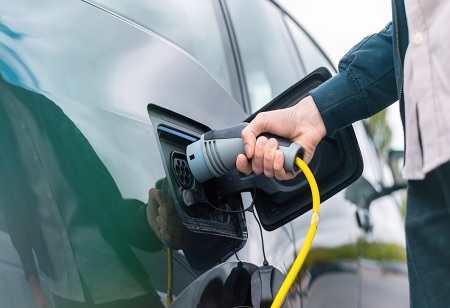
Japanese Automakers Invest $4.3 Billion in Thailand's EV Shift

 Thailand's electric vehicle (EV) aspirations are receiving a significant boost as major Japanese automakers plan to invest 150 billion baht ($4.34 billion) over the next five years, as announced by the Thai government. This substantial investment is expected to expedite Thailand's shift towards electric vehicles, with leading industry players such as Toyota Motor and Honda Motor committing around 50 billion baht each. Furthermore, Isuzu Motors and Mitsubishi Motors will contribute 30 billion baht and 20 billion baht, respectively, underlining their joint dedication to the manufacturing of electric pickup trucks.
Thailand's electric vehicle (EV) aspirations are receiving a significant boost as major Japanese automakers plan to invest 150 billion baht ($4.34 billion) over the next five years, as announced by the Thai government. This substantial investment is expected to expedite Thailand's shift towards electric vehicles, with leading industry players such as Toyota Motor and Honda Motor committing around 50 billion baht each. Furthermore, Isuzu Motors and Mitsubishi Motors will contribute 30 billion baht and 20 billion baht, respectively, underlining their joint dedication to the manufacturing of electric pickup trucks.
Chai Wacharoke, a spokesperson for the Thai government, disclosed that the investment is in harmony with the nation's policy to transition from conventional combustion engine vehicles to a more environmentally sustainable landscape with electric vehicles (EVs). This decision follows closely on the heels of a recent visit by Thailand's Prime Minister Srettha Thavisin to Japan, reinforcing the strategic partnership between the two countries in the automotive sector.
While Japanese automakers Toyota, Honda, Isuzu, and Mitsubishi did not comment on the matter, the investment is expected to bolster Thailand's status as the largest car producer and exporter in Southeast Asia. The Southeast Asian nation, eager to embrace the green revolution, aims to convert approximately one-third of its annual vehicle production, totalling 2.5 million vehicles, into electric vehicles by 2030.
To encourage further investment and facilitate the shift to EV manufacturing, Thailand is rolling out tax cuts and subsidies. This move not only supports the government's environmental goals but also positions Thailand as an attractive destination for automotive investment. The investment by Japanese automakers comes at a crucial juncture when Chinese EV manufacturers are increasingly making substantial inroads into the Thai auto sector.
The surge in Japanese investment aligns with Thailand's overarching strategy to attract key players in the global electric vehicle sector. In addition to Japanese automakers, Chinese companies like BYD and Great Wall Motor have pledged an investment of $1.44 billion for the establishment of new production facilities in Thailand.
With a proactive government stance and enticing incentives, Thailand has emerged as a pivotal battleground for global automakers competing for a share in the expanding electric vehicle (EV) market. Prime Minister Srettha recently presented industrial estates to executives from U.S. EV manufacturer Tesla this month, underscoring the country's willingness to foster additional international collaborations and investments within the electric vehicle sector.

